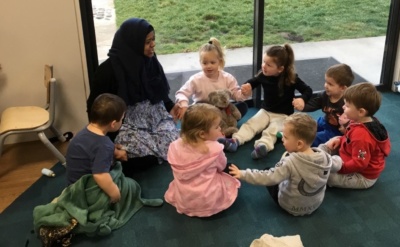- News
- Learning about Culture in the Early Years
Learning about Culture in the Early Years

CULTURAL RESPONSIVENESS vs ABORIGINAL AND TORRES STRAIT ISLANDER PERSPECTIVE
Cultural responsiveness is a contemporary way to think about culture and enables individuals and our organisation to be respectful of everyone’s backgrounds, beliefs, values, customs, knowledges, lifestyles and social behaviours.
Being culturally responsive includes a genuine commitment to take action against discrimination in any form, embedding Aboriginal and Torres Strait Islander perspectives in all aspects of our curriculum and working collaboratively with culturally and linguistically diverse children and families.
Aboriginal and Torres Strait Islander perspectives
Providing opportunities for Aboriginal and Torres Strait Islander children to see themselves, their identities and cultures reflected in their environment is important for growing a strong identity.
Embedding Aboriginal and Torres Strait Islander perspectives in all educators’ philosophy and practice is a key tool to advance Reconciliation. This also contributes to Closing the Gap commitments and fulfilling every Australian child’s right to know about Australia’s First Nations’ histories, knowledge systems, cultures and languages.
Embedding Aboriginal and Torres Strait Islander perspectives is a shared responsibility of approved providers, educators, and other professionals working in early childhood educational settings, regardless of whether Aboriginal and Torres Strait Islander children and families are enrolled in that setting.
Written by: Mel Rolls, Assistant Director, Alexander Beetle House
